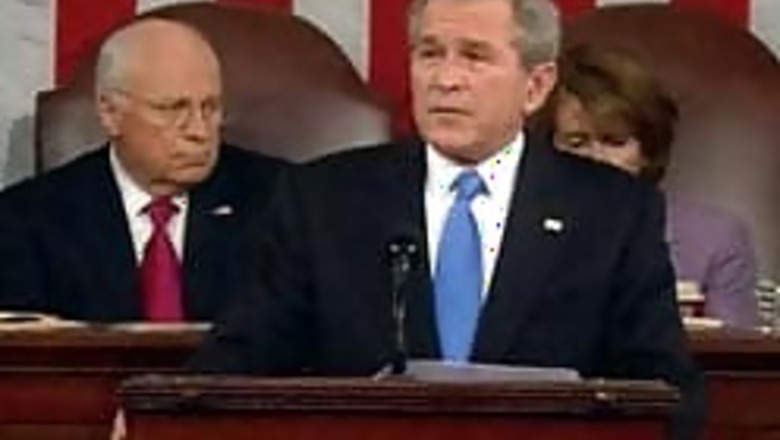
views
Washington: The US House of Representatives has passed the revised version of $700 billion bank bailout plan intended to bolster the ailing US financial system.
Wall Street traders have been watching developments in Washington closely.
The House had rejected the original bill on Monday, sending stocks tumbling around the world.
But lawmakers approved the rescue package, backed by US President George W Bush and Treasury chiefs, after the US Senate passed it by a large majority on Wednesday.
House Republican leader John Boehner was optimistic prior to the vote.
"Is it perfect? No. But it's clearly better than it was a week ago," he said.
"It's time to act on behalf of the American people. It's about their savings. It's about their jobs. It's about their retirement security."
At least eight lawmakers said they had changed their position Friday. "The way I see it, we don't have much of a choice," Democratic Congressman James McGovern said as the debate got under way.
Republican Congresswoman Sue Myrick said the plan was "the best thing for the country," admitting that supporting the legislation could cost her votes in November's Congressional elections.
But others reiterated their opposition to the measures, which some critics argue reward rapacious Wall Street speculators at the expense of ordinary taxpayers.
Monday's vote was 205 in favor of the bill, 228 opposed. The bill needs a simple majority of the representative present and voting to pass. The bill passed the Senate 74 to 25.
Stock markets around the world have endured days of turmoil as a consequence of uncertainty over Washington's response to the credit crisis.
The banking world has been in turmoil in recent weeks with many institutions scrambling for survival as credit has dried up, leaving many holding "toxic" subprime debt following the collapse in U.S. house prices.
The core of the Senate financial bailout bill is a plan to buy troubled assets from banks, but the proposal includes a number of new provisions aimed at ordinary people struggling under the credit crunch.
But the bill also includes some odd sweeteners -- so-called "pork-barrel legislation" -- such as an excise tax exemption for a very specific type of arrow used by child archers, a $478 million tax incentive scheme to encourage movie companies to continue producing films in the U.S, and measures to allow employers to provide benefits to employees who commute to work by bike.
Speaking in Friday's debate, Republican Congressman Steven LaTourette accused senators of "larding up" the bill. "Let's do it right. The pork doesn't belong in the bill," he said.




















Comments
0 comment